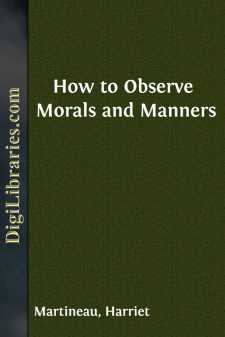Categories
- Antiques & Collectibles 13
- Architecture 36
- Art 48
- Bibles 22
- Biography & Autobiography 813
- Body, Mind & Spirit 142
- Business & Economics 28
- Children's Books 17
- Children's Fiction 14
- Computers 4
- Cooking 94
- Crafts & Hobbies 4
- Drama 346
- Education 46
- Family & Relationships 57
- Fiction 11829
- Games 19
- Gardening 17
- Health & Fitness 34
- History 1377
- House & Home 1
- Humor 147
- Juvenile Fiction 1873
- Juvenile Nonfiction 202
- Language Arts & Disciplines 88
- Law 16
- Literary Collections 686
- Literary Criticism 179
- Mathematics 13
- Medical 41
- Music 40
- Nature 179
- Non-Classifiable 1768
- Performing Arts 7
- Periodicals 1453
- Philosophy 64
- Photography 2
- Poetry 896
- Political Science 203
- Psychology 42
- Reference 154
- Religion 513
- Science 126
- Self-Help 84
- Social Science 81
- Sports & Recreation 34
- Study Aids 3
- Technology & Engineering 59
- Transportation 23
- Travel 463
- True Crime 29
Sort by:
by:
Abbe Prevost
Just about six months before my departure for Spain, I first met the Chevalier des Grieux. Though I rarely quitted my retreat, still the interest I felt in my child's welfare induced me occasionally to undertake short journeys, which, however, I took good care to abridge as much as possible. I was one day returning from Rouen, where I had been, at her request, to attend a cause then pending before...
more...
When Senator Al Gore was evangelizing support for his visionary National Research and Education Network bill, he often pointed to the many benefits of a high-speed, multi-lane, multi-level data superhighway. Some of these included: — collaborating research teams, physically distant from each other, working on shared projects via high speed computer networks. Some of these "grand challenges"...
more...
Once on a time, there lived in California a gentleman whose name was Connor,—Mr. George Connor. He was an orphan, and had no brothers and only one sister. This sister was married to an Italian gentleman, one of the chamberlains to the King of Italy. She might almost as well have been dead, so far as her brother George's seeing her was concerned; for he, poor gentleman, was much too ill to cross...
more...
BOOK CLUBS Book-collecting is undeniably one of the most engaging pursuits in which a refined and artistic taste may be indulged. From the earliest times, and even before the days of printing, this pleasant diversion has been pursued by persons of moderate means as well as by those of wealth and distinction, and every succeeding generation of book-collectors has exceeded its predecessors in numbers and...
more...
by:
Maurice Leblanc
CHAPTER I. THE ARRESTS The two boats fastened to the little pier that jutted out from the garden lay rocking in its shadow. Here and there lighted windows showed through the thick mist on the margins of the lake. The Enghien Casino opposite blazed with light, though it was late in the season, the end of September. A few stars appeared through the clouds. A light breeze ruffled the surface of the water....
more...
ON THE MORNING OF CHRIST'S NATIVITY.This is the month, and this the happy morn,Wherein the Son of Heaven's eternal King,Of wedded maid and virgin mother born,Our great redemption from above did bring;For so the holy sages once did sing,That he our deadly forfeit should release,And with his Father work us a perpetual peace.That glorious form, that light insufferable,And that far-beaming blaze...
more...
INTRODUCTION. "Inest sua gratia parvis." "Les petites choses n'ont de valeur que de la part de ceux qui peuvent s'élever aux grandes."—De Jouy. There is no department of inquiry in which it is not full as easy to miss truth as to find it, even when the materials from which truth is to be drawn are actually present to our senses. A child does not catch a gold fish in water...
more...
RENEWAL REGISTRATIONS A list of books, pamphlets, serials, and contributions to periodicals for which renewal registrations were made during the period covered by this issue. Arrangement is alphabetical under the name of the author or issuing body or, in the case of serials and certain other works, by title. Information relating to both the original and the renewal registration is included in each...
more...
Seeing that it is no less necessary for sculptors to have mastery over their carving-tools than it is for him who practises painting to be able to handle colours, it therefore happens that many who work very well in clay prove to be unable to carry their labours to any sort of perfection in marble; and some, on the contrary, work very well in marble, without having any more knowledge of design than a...
more...
by:
Clara Bell
CHAPTER I. Rocks-naked, hard, red-brown rocks all round; not a bush, not a blade, not a clinging moss such as elsewhere nature has lightly flung on the rocky surface of the heights, as if a breath of her creative life had softly touched the barren stone. Nothing but smooth granite, and above it a sky as bare of cloud as the rocks are of shrubs and herbs. And yet in every cave of the mountain wall there...
more...











